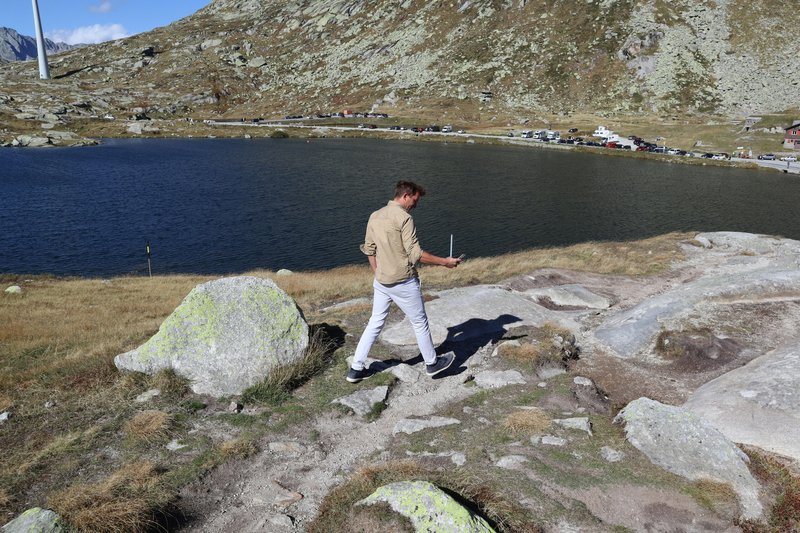What Sweltering Heatwaves Are Really Doing to Your Manhood
It’s a question more men are asking lately: does hot weather lower testosterone? With global temperatures rising and summers getting hotter, understanding how heat affects male biology is more important than ever. Testosterone, the cornerstone of male vitality, isn’t immune to environmental factors — and heat is a big one.
Why Testosterone Matters in the First Place
Testosterone is the primary male sex hormone. It affects everything from muscle mass and fat distribution to libido and mood. Low testosterone can lead to fatigue, low sex drive, weaker erections, and even depression. Maintaining healthy levels is essential for male confidence, sexual health, and physical energy.
The Science: Does Hot Weather Really Lower Testosterone?
Several studies suggest that high temperatures can impair testosterone production. Why? The body’s hormonal systems, especially the hypothalamic-pituitary-gonadal (HPG) axis, are sensitive to thermal stress. Excess heat can reduce sperm production, alter hormone signaling, and increase oxidative stress — all of which may reduce testosterone levels temporarily or chronically.
Heat and the Testicles: A Delicate Balance
The testes are outside the body for a reason — they need to stay 2–4°C cooler than core body temperature for optimal function. Prolonged exposure to high heat (like sitting in saunas, hot tubs, or even tight underwear on a hot day) can impair Leydig cells, which are responsible for testosterone production. This is one reason why infertility often spikes during summer months.
Symptoms of Heat-Related Testosterone Suppression
If you’ve been feeling drained, irritable, or sexually sluggish during summer, it might not just be the heat. You could be dealing with temporary hormonal suppression. Signs include:
- Lower libido or weak morning wood
- Increased fatigue or brain fog
- Reduced motivation or strength in workouts
- Mood swings or irritability
Is It Just Summer, or Something Else?
While hot weather can affect your hormones, it’s often not the only factor. Poor sleep (common during hot nights), dehydration, overtraining, alcohol, and processed foods can all contribute to low T. That’s why it’s important to look at the full picture — not just the thermometer.
How to Protect Testosterone During Summer
There are real strategies you can use to protect your hormones when the temperature rises:
- Hydrate aggressively: Dehydration reduces blood volume and increases cortisol — a testosterone antagonist. Check out how hydration affects erection to understand more.
- Avoid heat traps: Skip long hot baths, tight underwear, and synthetic fabrics.
- Optimize sleep: Use fans or cooling pads to get at least 7 hours of quality sleep.
- Consume testosterone-friendly foods: Zinc, magnesium, vitamin D, and saturated fats help maintain healthy hormone levels.
Boosting T Naturally Even in the Heat
If summer’s got you down, it’s time to fight back. Consider implementing proven techniques from our guide on how to rebuild testosterone after steroids. Many natural strategies overlap, such as resistance training, intermittent fasting, and sexual discipline.
Summer Lifestyle Habits That Lower Testosterone
Let’s be honest — summer often encourages testosterone-killing habits: late nights, alcohol, junk food, and chronic stress from travel or disrupted routines. Combine that with high heat, and you’ve got the perfect storm. To stay in top form, you need discipline and strategy.
What About Exercise in Hot Weather?
Exercise is essential for T production, but intense training in extreme heat can backfire. Overheating during workouts raises cortisol and oxidative stress — both known to suppress testosterone. Try training during cooler hours (morning or evening), and always stay hydrated. Pay attention to recovery just as much as effort.
Don’t Let Summer Steal Your Edge
Heat can be a hormonal enemy — but it doesn’t have to be. The key is preparation. Know your environment, build testosterone-friendly habits, and avoid the common summer traps. Just like men can reclaim their confidence and performance with methods taught at our site, you can turn summer into a season of growth instead of decline.
Want to protect your testosterone naturally? Check the full guide to hormonal growth.
The Role of Environmental Temperature in Male Fertility
It’s not just testosterone — high ambient temperatures are also linked to reduced sperm quality. According to the American Society for Reproductive Medicine, elevated scrotal temperatures can impair spermatogenesis. The same principle applies to testosterone synthesis. Long hours in hot environments — like factories, kitchens, or even long commutes in unventilated vehicles — may have lasting effects on male hormone health.
Can Hot Weather Trigger Estrogen Dominance?
One overlooked consequence of heat stress is its effect on hormonal balance. When testosterone drops and cortisol rises, estrogen can become dominant. This imbalance can lead to weight gain, emotional volatility, and even gynecomastia (male breast tissue). Managing estrogen levels is as crucial as maintaining testosterone — especially during months of prolonged heat exposure.
Seasonal Affective Disorder Isn’t Just for Winter
While SAD is commonly associated with winter blues, extreme summer heat can create similar hormonal imbalances. Sleep disruption, inflammation, and heat-induced fatigue can lead to lowered dopamine and testosterone, increasing symptoms of depression and irritability. A stable hormonal system requires rest, recovery, and regulated body temperature.
How Clothing Choices Influence Hormone Health
Wearing the wrong fabrics in hot weather can trap heat around your groin, raising scrotal temperature. Avoid tight synthetic underwear or pants that restrict airflow. Go for loose, breathable options like cotton or moisture-wicking performance materials. Even small adjustments in clothing can significantly impact testicular and hormonal health.
Does Hot Weather Lower Testosterone in All Men?
Heat doesn’t affect every man equally. Your baseline health, fitness level, hydration habits, and even ethnicity can influence how your body responds to high temperatures. However, studies consistently show that men exposed to long-term heat stress — such as soldiers, athletes, or workers in high-heat environments — tend to have lower testosterone readings over time.
Do Saunas and Hot Showers Hurt Testosterone?
Saunas, steam rooms, and hot baths can provide benefits like relaxation and detox, but chronic use may negatively affect testosterone if not balanced. The problem isn’t occasional heat exposure — it’s overexposure. Balance it with cold plunges or contrast therapy to promote circulation and hormonal resilience.
Cold Exposure and Testosterone Recovery
On the flip side, cold showers and cryotherapy are linked to increased alertness, reduced inflammation, and improved hormonal balance. Incorporating regular cold exposure can help counteract the effects of excessive summer heat and assist in testosterone recovery. Combine this with practices from jelqing exercises for girth to promote blood flow and sexual energy.
Heat and Sexual Confidence: The Mental Link
When testosterone drops, it doesn’t just affect your body — it messes with your mind. Confidence, drive, and assertiveness all decline. That’s why you might feel less motivated during summer even when you’re physically healthy. It’s a hormonal and neurological effect that can be reversed with smart lifestyle strategies and self-awareness.
Testosterone-Friendly Summer Supplements
If you’re concerned about heat-induced hormonal drops, consider adding natural supplements that support T production:
- Zinc: Essential for Leydig cell function
- Vitamin D: Synthesized from sun, but often blocked by sunscreen or indoor living
- Ashwagandha: Adaptogen that reduces cortisol
- Magnesium: Helps improve sleep and regulate stress
These can be stacked for optimal results — especially during stressful summer months.
Don’t Ignore the Warning Signs
If you notice reduced erections, lack of energy, or shrinking morning wood during summer, don’t dismiss it as “just the heat.” It could be an early sign of hormonal imbalance. Read more about how other habits — like porn — can also impact your sexual health in our deep dive on can porn addiction cause ED.
Bonus Tip: Timing Matters
Plan your most important physical or sexual activities during cooler parts of the day — early morning or after sunset. Your body performs better when not battling heat exhaustion. This strategy can help preserve testosterone output and improve performance across the board.
Long-Term Effects of Heat on Hormonal Health
Chronic heat exposure over years may accelerate age-related testosterone decline. If you live in hot climates, this is something to take seriously. Building routines that mitigate heat damage isn’t optional — it’s a long-term investment in your masculinity. The good news? Your body is resilient, and change starts now.
Final Thoughts: Turn Up the Heat on Your Masculinity, Not Your Hormones
So, does hot weather lower testosterone? The answer is yes — but only if you let it. Heat can be a silent disruptor, but with the right knowledge, it becomes a manageable factor. Don’t let climate steal your drive, your erection quality, or your identity as a high-performing man.
Apply everything you’ve learned, stay hydrated, dress smart, and take proactive steps to protect your T levels. When in doubt, refer to our full protocol for hormone recovery in this complete guide.
You don’t have to accept decline — you can evolve. And that’s what makes you powerful.
❓ Frequently Asked Questions (FAQ)
- Can high temperatures reduce testosterone?
Yes. Extended exposure to heat can impair testicular function and lower testosterone by increasing oxidative stress and disrupting hormonal balance. - How can men protect testosterone during summer?
By staying hydrated, avoiding heat traps like tight clothing, training during cooler hours, and supporting hormones with nutrient-dense foods and sleep.









